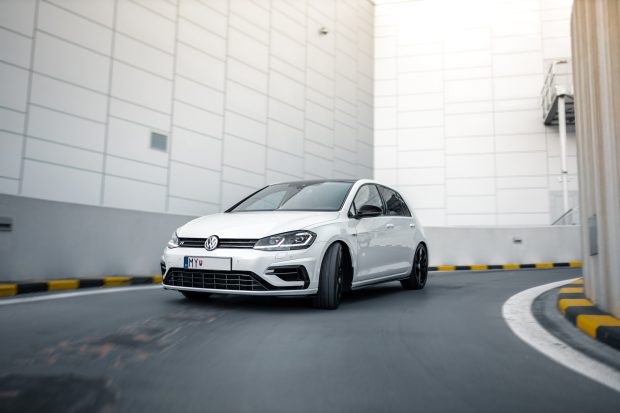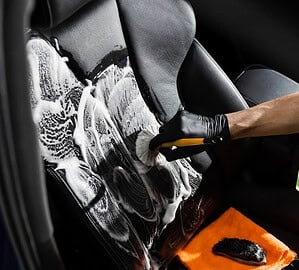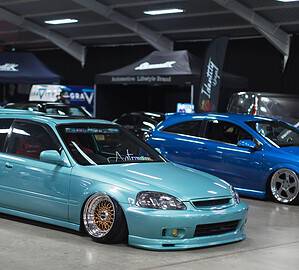When you’re in the market for a new vehicle, you may be tempted to get out of your comfort zone and drive something different. The North American vehicle market has shifted a lot lately, and what’s out there has generally moved toward bigger and taller.

Credit: Martin Katler via Unsplash
That said, there are still tons of efficient, agile sedans and compact cars that can meet your needs and carry themselves with a bit more style than your typical SUV. Whether you primarily drive yourself around or you’re chauffeuring the whole family, these are some of the pros and cons of compact cars, mid-size sedans, and SUVs.
Compact Cars
A bigger vehicle isn’t for everyone. Whether it’s because you need a vehicle that’s agile and adept at handling crowded city streets or you just prefer the style of a smaller vehicle, a compact car could be the right option for you.
Compact cars include models like the VW Golf, Honda Civic, Hyundai Elantra, Toyota Prius, Mazda 3, and many others.
Generally, drivers prefer compact cars when they enjoy the experience of driving, a bit of refinement, and great value for their vehicle. Compact cars also generally have superior fuel efficiency, and they’re easier to navigate urban environments in, including parking and turning.
The disadvantage of compact cars is typically the size. While they seat as many as a mid-size sedan, there’s not as much room for passengers or cargo. Interior volumes tend to be just 100 cubic feet.
Mid-Size Sedans
If a compact car is too small for you and your needs, you might want to take a look at mid-size sedans before making the jump all the way to an SUV. Mid-size sedans like the Honda Accord, Toyota Camry, Ford Fusion, and Nissan Altima typically seat the same number of passengers as their compact cousins, but they give you a lot more elbow room and cargo space.
Sedans offer better fuel efficiency than SUVs. Most sedans come with a four-cylinder engine, and even those that do come with the power of a V-6 have less weight to power around.
They’re considerably less top-heavy than SUVs, which makes them considerably more driveable than larger vehicles. There is a much lower chance of rolling over on a sharp turn, and you still get easier parking.
Choosing the right vehicle for you means finding the right mix of style, safety, and space. While compact cars provide agility and style, they can’t compete with SUVs and crossovers for space or safety.
SUVs
There are plenty of great reasons to finally make the jump to a bigger car like an SUV. If you have a growing family or a need for a lot more space, SUVs provide extra seating, more legroom, more cargo, and a generally more comfortable interior.
Many SUVs also come with increased towing capacity and more power in the engine. What they lack in driving maneuverability on city streets, they make up for in handling bad weather and road conditions. They can also be a great choice if your commute takes you onto the highway driving through the winter or in other bad weather conditions.



